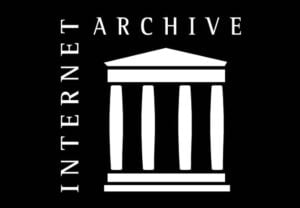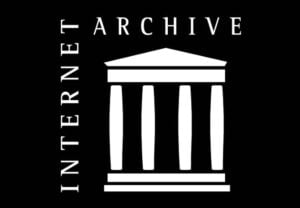
The Internet Archive is doubling down on its position that its digital lending library service operates under the bounds of fair use. Major publishers assert that digitizing books without appropriate licensing amounts to infringement but IA counters that the practice is in the public interest. It also fits copyright’s ultimate purpose; to promote the broad public availability of literature and other arts.



I really feel like we need to have a huge overhaul of copyright law in general, it seems like it’s all a mish-mash of old laws from before the internet existed, patched over with half-assed rules that we’ve just been making up as we go along since then.
Some of it is absurd to me, like the way something can be online but geographically restricted. I’ve had the situation in the past where I want to watch a movie trailer, but I can’t because I’m in Canada and not the US, even though the movie is also out in Canada. It’s so pointless and easily circumvented, and all it does is annoy people. Or that something can still be copyrighted almost a century after the author is dead.
And to get back to the point, we also really need to make some kind of exemption for archival purposes. So much information, art and cultural heritage is lost because copyright holders don’t look after the stuff they own and don’t want to pay to preserve it properly. The internet could be one of the best archival tools we’ve ever had, if we’d just let it do its thing IMO.
Don’t forget that legally we count corporations as people, and corporations can live on indefinitely.
Originally copyright provided a monopoly for 14 years, plus one optional 14 year extension.
A ground-up overhaul of the copyright system would make things so much worse, not better, considering the current climate of power. In the US for example, MPA, RIAA, Entertainment Software Association, Association of American Publishers, and others wouldn’t want public libraries or the used market to exist at all; they would push for making every single transfer of “ownership” on any media involve a payment to the rights holder. Lawmakers are far more likely to accommodate those groups’ desires than the public good.
The worst parts of the current copyright system are the most recent. Both the DMCA and the extension of US copyright term to 95 years took effect in 1998, and the early 2000s saw many other countries passing laws to make their copyright system closer to US’s in various ways such as the WIPO Copyright Treaty which took effect in 2002 and EU’s 2006 Copyright Directive. Just about the only positive news we’ve seen in US copyright law since then is in temporary exemptions to DMCA’s anti-circumvention rules (Section 1201) which change every year. Copyright law was far less hostile to consumers and the public before the 90s than it is now, and up until 1976 it used to be expected that most media someone consumes would enter public domain within their lifetime.
The digital era makes market relevance far more ephemeral than ever and yet the laws written for the digital era moved copyright in the opposite direction. Movie studios simultaneously judge whether a film succeeded almost exclusively based on its first week of ticket sales and also claim that depriving public domain for 95 years is necessary. Nothing should be able to justify more than 20 years of copyright. Media formats don’t even last as long as copyright; CDs and DVDs rot, game cartridges die, servers shut down, and even books printed on today’s low-quality paper will fall apart.
This is a consequence of contract terms moreso than copyright. One issue in copyright law that this does connect to, though, is the fact that the question of whether the rightsholder keeps a work reasonably available on the market does not impact whether the work retains copyright protections. If copyright law did hypothetically include that limitation, providers would become far more likely to make sure that all content is available in all countries, but even then things could still vary in terms of which content is on which platform.